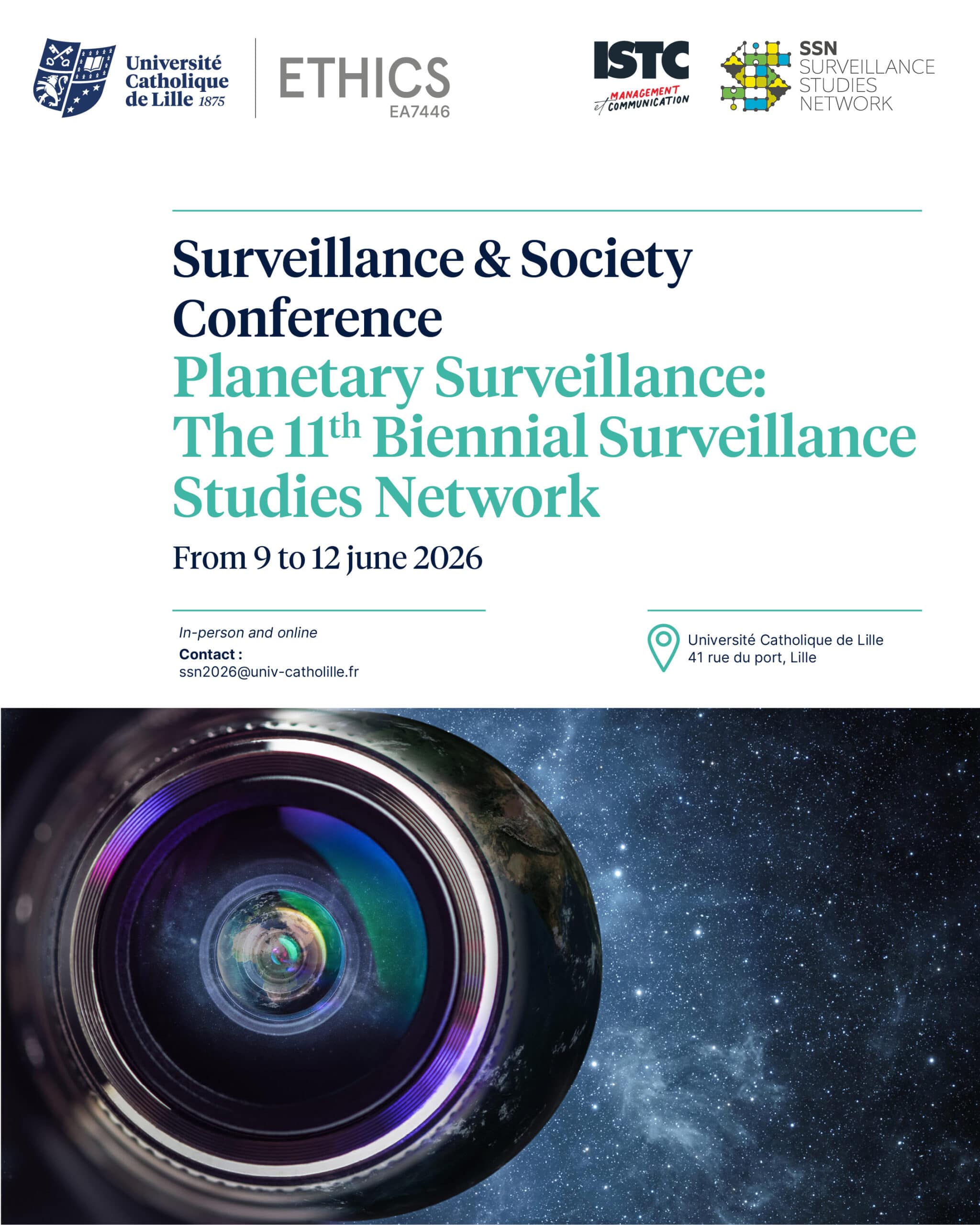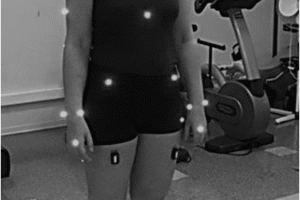Planetary surveillance conference – The 11th Biennal Surveillance Studies Network
Planetary surveillance conference – The 11th Biennal Surveillance Studies Network
Presentation
The condition of our world is increasingly framed through planetary metrics: temperature rise, biodiversity loss, financial instability, migration flows. Surveillance underpins these metrics, producing ways of seeing and managing the planet. We are promised a new era of planetary knowledge by using surveillance systems that can map, predict, and manage the risks of a fragile world. But these very systems also fragment, exclude, and reproduce old asymmetries. Planetary governance is shaped by historically entrenched inequalities, exclusions, and power. Surveillance is presented as the key to planetary survival, yet it often accelerates insecurity and injustice. #SSN2026 invites us to grapple with what it means to think of surveillance at the scale of the planet: from micro habitats to global ecosystems and processes.
Infrastructures of sensing, monitoring, control and computation now extend across scales: from satellites orbiting the Earth to predictive algorithms embedded in the most intimate aspects of everyday life. Surveillance technologies now claim planetary reach: global infrastructures, algorithmic systems trained on worldwide data, and satellites and networks that promise to know, predict, and govern different forms of life on Earth. Surveillance is a driver and a product of this planetary turn, as states, citizens and more-than-human others grapple with social and environmental change and crisis, and plan for the possibility of hostile and stable futures.
From predictive policing to climate modeling, from espionage to artificial intelligence, surveillance is the connective tissue of our planetary intelligence. Surveillance lies at the heart of these transformations. It both enables and depends on new forms of planetary intelligence — whether through data extraction on a global scale, the training of artificial intelligence systems on the traces of human activity, or the monitoring of ecosystems, climate, crime, migration, and conflict through planetary infrastructures, some of which are located on and above the earth. Surveillance appears, spreads, and intensifies not only in the name of security but also in the name of planetary management: climate monitoring, global health, financial stability, digital platforms, or border regimes. Yet planetary intelligence also generates new possibilities for critique, resistance, and reimagining collective futures. It may also be harnessed for the production of ecosocial goods.
This planetary turn raises important questions:
- Which forms of life are rendered visible, measurable, and governable, and which remain invisible or deliberately obscured?
- What diverse role is surveillance playing in environmental mapping and governance?
- How do geopolitical rivalries, colonial legacies, and global inequalities shape the emergence of planetary surveillance infrastructures?
- What methods of resistance to authoritarian planetary surveillance exist? How can these methods be developed?
- What are some of the relationships between nature and surveillance?
SSN 2026 seeks to engage with these entanglements of surveillance and planetary processes and governance We invite proposals for papers, panels, doctoral colloquium participation, artistic and activist interventions, and other contributions on all aspects of surveillance in and across the planetary condition.
Venue, accessibility & streaming
The main Conference will take place over 3 full days from 10-12 June 2026, at the Université Catholique de Lille, France, with a pre-conference doctoral colloquium occurring on 9 June. All in-person sessions from the main conference will be streamed online, and there will also be a dedicated online track with remote presentations for presenters who cannot attend in-person (this will be limited, prioritizing virtual options for individuals from Majority World nations, people with disability requirements or (child) care responsibilities, and/or others without adequate funding to attend the conference in person). Some travel support will be available to a limited number of presenters upon application.
Keynote speakers and special sessions
Several keynote sessions are under development and will be advertised as they are finalized.
Doctoral colloquim
There will be an in-person colloquium for doctoral students on 9 June. Interested doctoral colloquium participants should indicate their interest in attending by submitting an expression of interest via the regular conference proposal submission portal. Applying for the colloquium will require applicants to submit a short expression of interest of up to 300 words that addresses the applicant’s professional background (e.g., their PhD program and research areas) and what they would hope to learn, do, or accomplish as part of the colloquium – and we invite creative proposals that think outside the box! Applicants are welcome to connect their interests to the conference theme, but there is no expectation or requirement to do so.
Submissions
Notifications of acceptance will be sent on or before 23 February 2026.






